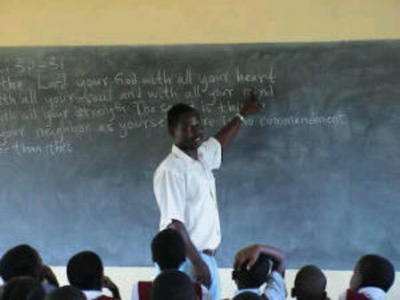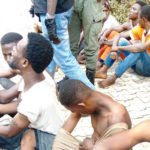
The report provided details about the implications of this situation for the future of the individuals involved and the nation more generally. Children who are victims of such educational systems “face the prospect of lost opportunity and lower wages in later life because their primary and secondary schools are failing to educate them to succeed in life.” Furthermore, education without learning cannot deliver on its promise to eliminate extreme poverty and create shared opportunities and prosperity for all. Children who, after several years in school, cannot read, write or do basic mathematics are likely to reach adulthood without the most basic skills in life. Such adults are less likely to find well-paying and satisfying jobs. They may therefore not be effectively integrated into the political and community life of the society. Simply put, the learning crisis widens social gaps instead of narrowing them. In many parts of the country where conflicts have created forced migration and displacement, the situation is dire.
The report calls for greater measurement, action on evidence, and coordination of all education actors. Among the policy steps recommended were: stronger learning assessments, using evidence of what works to guide education decision-making and mobilising a strong social movement to push for education changes for “learning for all.” The educational policy in Nigeria has always considered education as an important tool of national development and human welfare. This policy position was taken so seriously in the 70s and 80s that many governments at the state level instituted free education at all levels. However, what has become obvious in the last two decades is that the policy has not been successfully implemented. It is now obvious that instituting free education does not guarantee that children of school age will be in school. This is largely because of the deepening poverty which forces children of school age to join the list of income-generating members of their families in order to sustain livelihood.
Today, making basic education universal, free and compulsory as a matter of policy is no longer sufficient. The government must take positive action by providing incentives for poor parents to put their children in school. Such circumstances in several countries like Brazil, Kenya and India have led governments to introduce massive conditional cash transfers and school feeding programmes to keep children in school. These have to be done to break the vicious cycle of poverty created by millions of out-of-school children. In any case, successive governments in Nigeria have been slow in adopting these measures. During the launching of the report, the Minister of Education, Adamu Adamu, was quick to announce that the current government had developed a roadmap for the education sector entitled: ‘Education for Change: A Ministerial Strategic Plan.’ He also noted that the government had launched a number of programmes such as the N-Power programme and the home-grown School Feeding Programme to reduce the number of out-of-school children and to bring them into the classroom. The point he did not state is that these programmes are still at the pilot stage. They are not massive programmes that can lead to a significant change in the current situation.
Furthermore, the issue of capacity gaps, not just in the management of public schools by teachers and school administrators, but also among officials of the Ministry of Education who are expected to oversee and supervise the work of those in the schools, is not given adequate attention. Also important is the fact that many of those who are high up in the educational sector do not send their children to public schools. Thus, the interest in addressing the problems in the public schools is not strong. Yet, public schools with their relatively poor performance in service delivery hold a significantly higher number of school children in the country. Thus, if the crisis in the educational sector is to be addressed, the focus must be on basic education as it is related to public schools.
Government officials and other stakeholders, including private sector operatives, must know that even the underprivileged deserve effective and meaningful education. These underprivileged citizens constitute the majority of citizens and their interests can only be neglected to the detriment of development, peace and stability of the entire country.
WATCH TOP VIDEOS FROM NIGERIAN TRIBUNE TV
- Relationship Hangout: Public vs Private Proposals – Which Truly Wins in Love?
- “No” Is a Complete Sentence: Why You Should Stop Feeling Guilty
- Relationship Hangout: Friendship Talk 2025 – How to Be a Good Friend & Big Questions on Friendship
- Police Overpower Armed Robbers in Ibadan After Fierce Struggle





